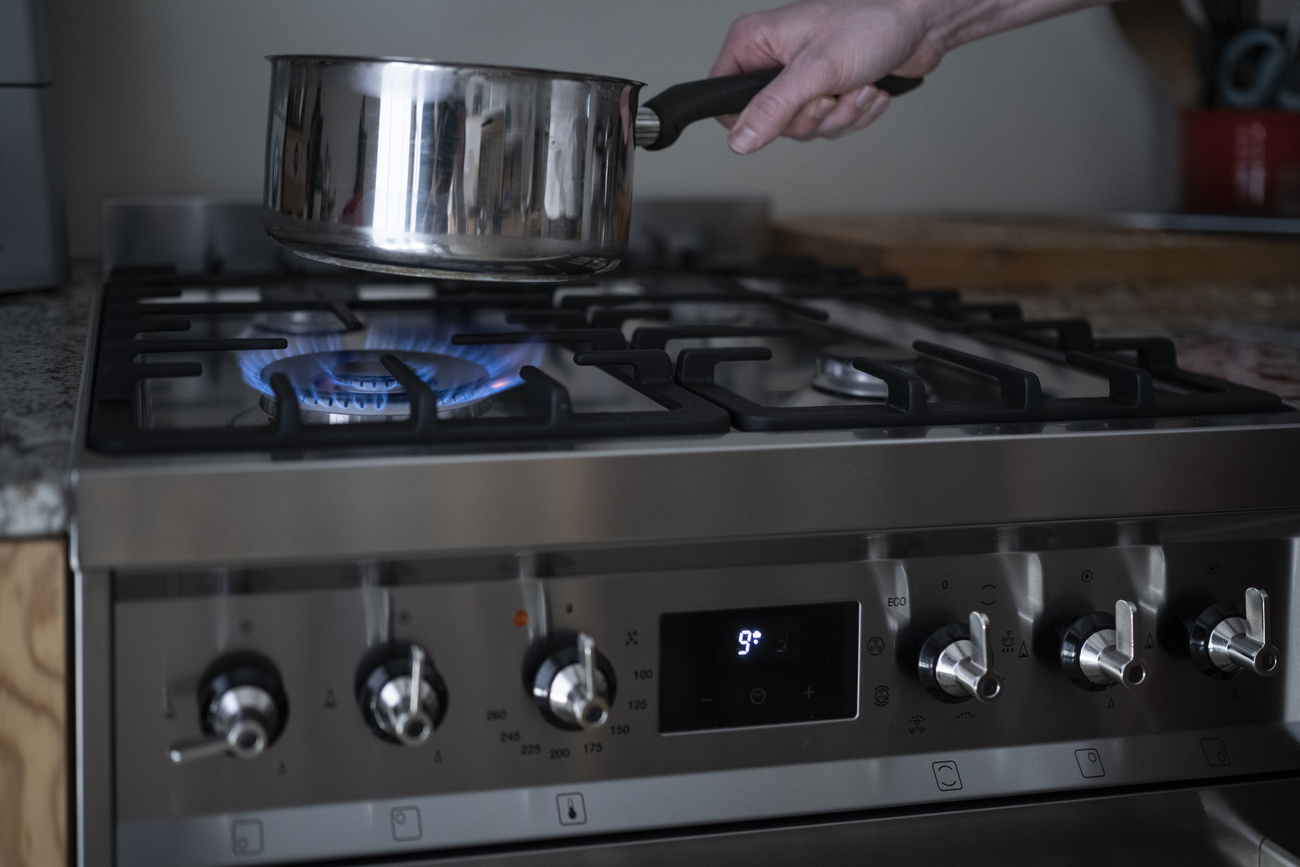

Switzerland Today
Dear Swiss Abroad,
Geneva has been celebrating its local tap water, better known as “Eau de Genève”. It’s the 15th anniversary of a promotional action to encourage people to drink the local water – and it seems to have worked.
Back in 2009, only 55% of locals said they drank Geneva tap water. Under a new brand name and better quality control, 92% now say they regularly quaff the clear transparent nectar. Cheers!
Read on for more news and stories from Switzerland.

In the news: sugary Nestlé infant milk, Russian assets, Geneva inventions fair and Mafia in Switzerland.
- Swiss food giant Nestlé’s infant formula and cereal sold in low-income countries contain sugar and ignore WHO anti-obesity guidelines for Europe, says Swiss NGO Public Eye.
- Parliamentarians in the House of Representatives have rejected a call for Switzerland to join the G7’s REPO (Russian Elites, Proxies, and Oligarchs) taskforce, which is tasked with tracking down Russian assets Russian oligarchs’ assets.
- Parliament has voted to ban the public use of extremist symbols that promote violence. The House of Representatives followed the Senate by supportingExternal link a motion and two initiatives on this issue. The government must now propose the necessary legal changes.
- Around 1,000 inventions from 40 countries are being showcasedExternal link at the International Exhibition of Inventions Geneva, a record for the annual trade fair that attracted 24,000 visitors last year.

Police chief warns of Mafia’s infiltration of Switzerland.
Organised crime has infiltrated Switzerland’s justice system, and police resources are insufficient to combat it effectively, warnsExternal link Nicoletta della Valle, director of the Federal Office of Police (Fedpol).
Around 60 investigations were opened in Switzerland in 2021 linked to the encrypted communication service for criminals, Sky ECC. This had been cracked by Europol, revealing numerous cocaine, cannabis, synthetic drugs, and weapons cases.
“Fedpol is investigating 15 of these,” said Nicoletta della Valle in an interview with the Neue Zürcher Zeitung (NZZ) today. “However, we have only analysed 20% of the extensive data so far. We simply don’t have the resources, and time is running out: the older the data, the less valuable it becomes.”
The Fedpol chief says the data shows that “the Mafia has undoubtedly infiltrated Switzerland. These members belong to the Balkan Mafia, the Italian Mafia, and other criminal organisations. They meticulously divide their criminal activities.” Furthermore, these organisations collaborate increasingly. Fedpol remains uncertain about the exact number of cells and drug production now occurring within the country.
“Based on images relayed via Sky ECC, we observed the process of legally cultivated hemp being sprayed with synthetic cannabinoids in a laboratory. Subsequently, this treated hemp is exported in large quantities as cannabis containing THC,” says Della Valle.
But current police resources are insufficient to effectively combat organised crime, she says.
“Sometimes 20 or 30 federal and cantonal investigators are deployed on a single case for months,” she said. “In Switzerland, around five such proceedings can be carried out simultaneously with the current resources of all police forces. In terms of police density in relation to the population, Switzerland lags far behind the rest of Europe.”
“Gathering enough evidence for an indictment is also challenging,” says Della Valle. “There are shops in prime city centre locations that are almost always empty, or gelaterias that report the same turnover in winter as they do in summer. In such cases, the police know that something can’t be right, but it’s extremely difficult to do anything about it.”

Switzerland’s domestic energy resources to ‘run out’ by tomorrow.
Switzerland imports around 70% of its energy, costing over CHF11 billion ($12 billion) a year, according to the Swiss Energy Foundation (SES). If the country only relied on local energy sources, they would run out by the end of today, according to the foundation.
Compared to other countries from the European Union, Switzerland ranks relatively low in terms of energy independence. According to Eurostat, the federal government’s rate stands at 29.5%, compared to Germany’s 32.7%. Estonia tops the list with 93.8%. Some Eastern and Northern European countries follow with over 50%, then France with 48.2%. Behind Switzerland are Belgium (26.1%), Spain (25.7%), Austria (25.5%), Italy (20.6%) and, below 10%, Luxembourg and Cyprus, or Malta, with 1%.
An energy “independence rate” of just under 30% is a worrying signal, says SES.
On June 9 citizens in Switzerland will vote on the revised electricity law adopted by parliament last September aimed at implementing the government’s Energy Strategy 2050. The aim of the law is to increase electricity production in the long term. Production targets have been set for 2035 and 2050.
Under the revised law, it will be easier to build large-scale hydro, solar and wind power plants and reduce dependence on foreign energy sources. As they are now in the national interest, their construction will take precedence over nature or landscape protection. If the targets are not met, smaller facilities will be given the same privileges.
The Franz Weber Foundation, supported by other organisations, collected enough signatures to force a referendum against the law, which it regards as dangerous for nature and landscape protection in Switzerland. It believes that it makes absolutely no sense, in the name of the climate, to clear forests, cover Alpine landscapes with solar panels and flood biotopes for hydroelectric power.
Critics of the energy law say the focus should be put on energy savings and boosting solar power on existing buildings. The revised law is supported by parliamentarians from the left and right, economic and environmental organisations.

More
Newsletters

In compliance with the JTI standards
More: SWI swissinfo.ch certified by the Journalism Trust Initiative





























